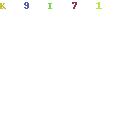MUMBAI: In a courtroom battle against the power of Telecom Regulatory Authority of India (TRAI) to curb pay channel prices within a bouquet, former solicitor general Harish Salve on Wednesday set the tone before Bombay high court for broadcasters when he said bundling of “unpopular” channels along with “popular channels” cannot be a ground to fix tariff.
The TRAI in its new Tariff Order of 2020 set a cap of Rs 12 from the existing Rs 19 on pay channel prices. It was “to ensure that an effective a-la-carte choice was available to distributors without being handicapped by perverse pricing of bouquets by broadcasters at wholesale level,” it had earlier argued.
The TRAI justified its move as one in “public interest”. It had raised concerns over broadcasters creating bouquets with one or two leading channels and filling it with other less popular channels or even free-to-air channels, making it difficult for consumers to choose channels.
The broadcasters had earlier this year approached the HC to challenge the new TRAI regulation.
A bench of Justices Amjad Sayed and Anuja Prabhudessai was on Wednesday hearing a final challenge via video-conference in a batch of 10-odd petitions filed leading broadcasters including Sony Pictures, Zee Entertainment, Star India, TV18, NGC, Asianet Star Communications, Indian Broadcasting Foundation(IBF) and The Film and Television Producers Guild of India as well as Digital Cable Operators’ Association of Mumbai.
Salve, appearing for Disney, opened the arguments on the constitutional challenge they raised to TRAI fixing the tariff including curbs on discounts. His submissions centred around broadcasters’ right to disseminate content as a right to freedom of speech and expression under article 19(1)(a) of the Constitution. He said such a fundamental right cannot be circumscribed on ground of public interest as is sought to be done by TRAI; as under Article 19(2) ‘public interest’ does not form one of the grounds of reasonable restrictions. He also emphasized that the bouquet of channels by themselves also subserve a public interest to consumers. There cannot be a problem in law if the broadcaster wants to bundle an unpopular channel with a popular channel, he said and saw TRAI’s price curbs as a restriction on such bundling which would be a restriction on disseminating content.
Freedom of speech and expression, though a fundamental right can be restricted under Article 19(2) by laws “in the interests of the sovereignty and integrity of India, the security of the State, friendly relations with foreign States, public order, decency or morality or in relation to contempt of court, defamation or incitement to an offence.”
Salve went on to read from several leading judgments on freedom speech including the landmark ruling by the Supreme Court in ‘Sakal newspapers’ when it held against a law intended to fix the price or pages of newspapers on the ground that dissemination of ideas was a fundamental aspect of freedom of speech and that the law would impinge on such right.
“A prescription of ceiling of MRP of Rs.12/- on a-la-carte channels forming part of a bouquet or for that matter, fixation of any ceiling… is an invasion in broadcaster’s right to enter into commercial contracts for exploitation of freedom of speech,” the IBF had contended in its petition.
The hearing will continue next week. The TRAI had in July set a new September 3 deadline for broadcasters to start implementing the new tariff order by disclosing the channel rates. But with the hearing on now, TRAI is unlikely to take any coercive action against broadcasters.
The high court will finally decide the issue once the hearing is over.
Source: https://timesofindia.indiatimes.com/city/mumbai/tariff-war-with-trai-before-bombay-hc-broadcasters-expound-on-right-to-freedom-of-speech-in-disseminating-content/articleshow/77895177.cms



